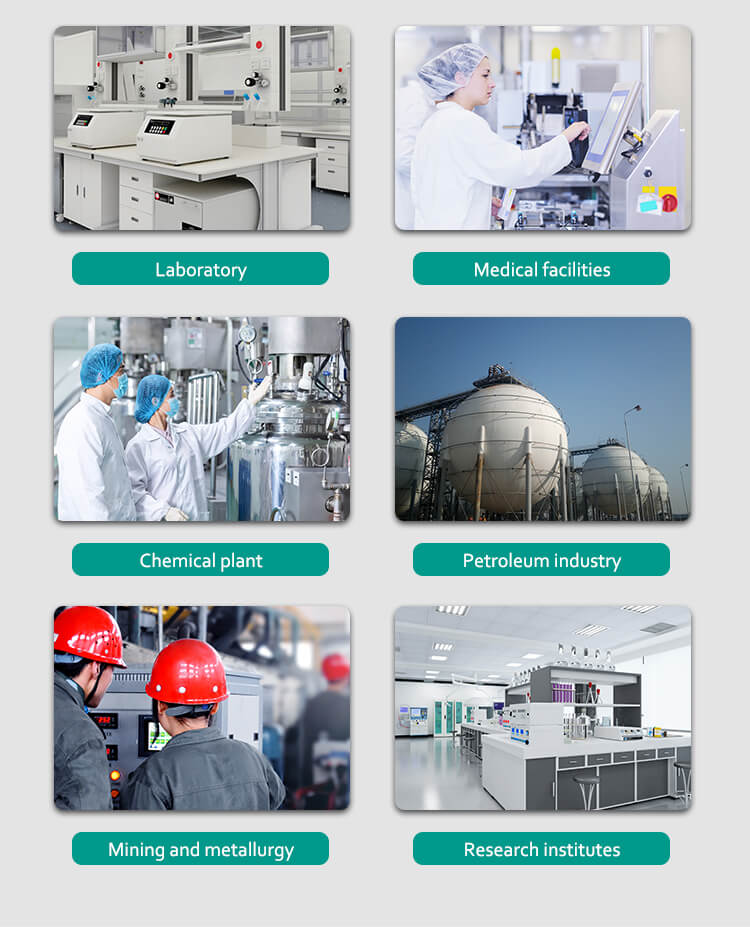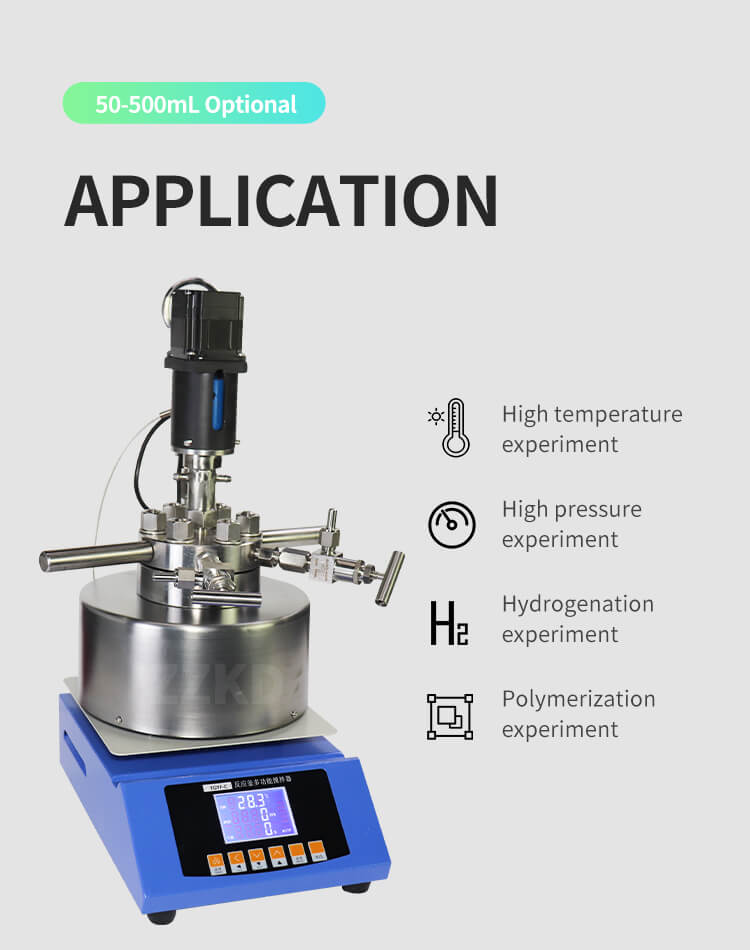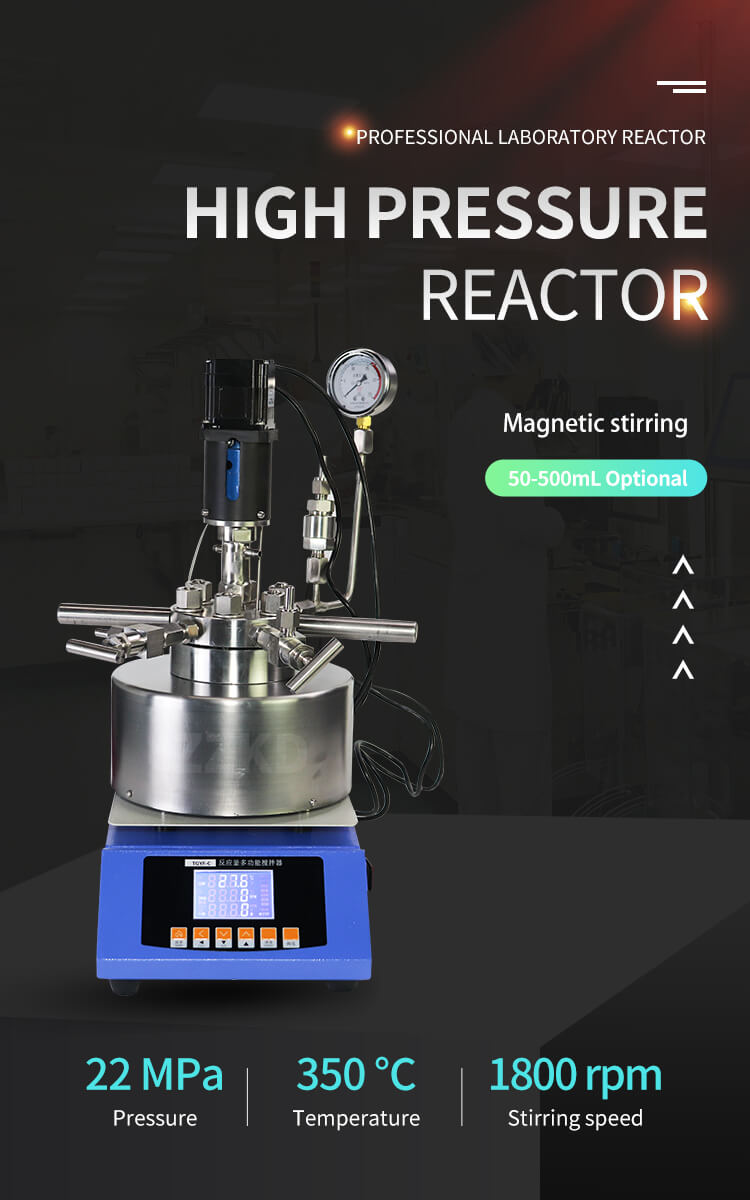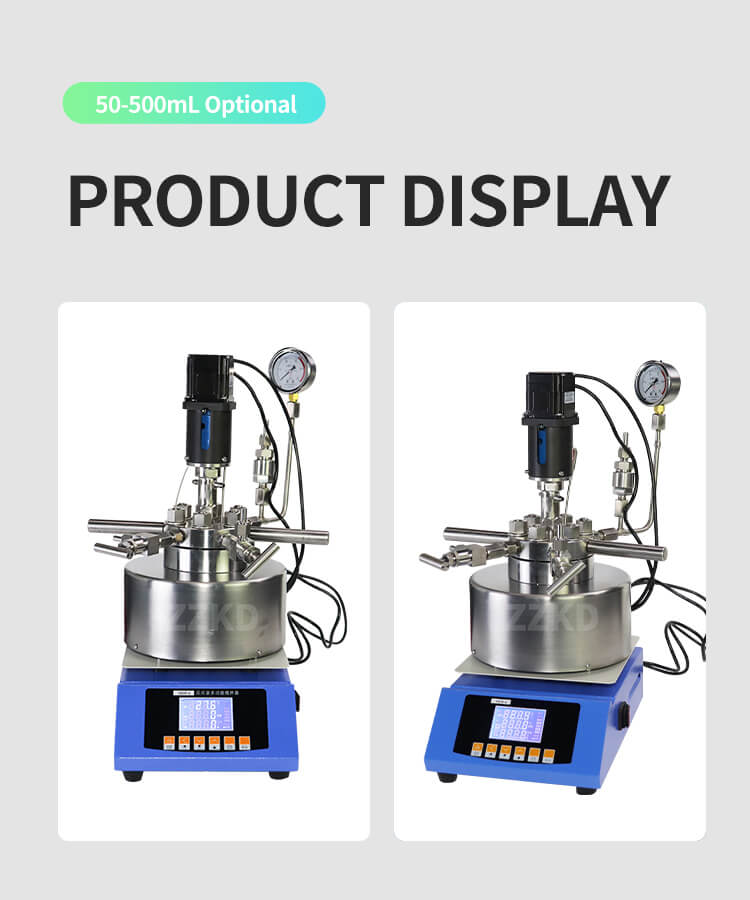In the world of scientific research, the High Pressure Reactor holds great significance. This advanced technology plays a vital role in the field of chemical engineering by facilitating various chemical reactions under high pressure conditions.

The Power of High Pressure
Operating at elevated pressure levels, this cutting-edge reactor offers scientists the ability to study and optimize chemical reactions like never before. By subjecting compounds to high pressures, researchers can uncover unique properties and behaviors of substances that are generally not observed under normal atmospheric conditions.

High pressure environments can significantly alter reaction kinetics, rates, and equilibrium, allowing scientists to manipulate various factors to obtain desired outcomes. This invaluable tool opens up new avenues for discovering novel chemical compounds and optimizing industrial processes.

Applications in Research and Industry
The applications of high pressure reactors are vast and diverse. In the field of catalysis, these reactors aid in the development of efficient catalysts, allowing for the optimization of chemical conversions and the creation of cleaner and more sustainable processes.

High pressure reactors also find extensive use in the pharmaceutical and petrochemical industries. They provide a means to study the behavior of different substances under the high pressures found in deep-sea oil extraction or within various parts of the human body, aiding in the development of safer and more effective drugs.
Innovation and Safety
Over the years, advancements in technology have allowed for the development of safer and more efficient high pressure reactors. State-of-the-art designs incorporate several safety mechanisms to ensure the protection of researchers and equipment. Advanced control systems enable precise pressure and temperature regulation, minimizing the risk of accidents and providing accurate and reproducible results.
Furthermore, modern high pressure reactors are often paired with spectroscopic techniques and other analytical tools, allowing scientists to monitor reactions in real-time. This combination of technologies provides invaluable insights into reaction mechanisms and facilitates the optimization of processes.
Future Prospects
As research in the field of high pressure reactions continues to expand, the possibilities for scientific discovery and industrial innovation are boundless. With further advancements in reactor design, materials, and analytical techniques, we can expect even more efficient and versatile high pressure reactors in the future.
From unlocking the secrets of new chemical compounds to optimizing industrial processes, high pressure chemical reactors hold immense potential. They are the catalysts that drive progress in chemical engineering, paving the way for groundbreaking discoveries and safer, more sustainable industries.





